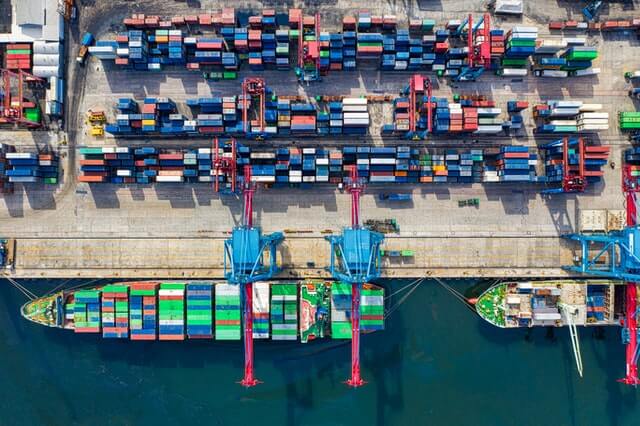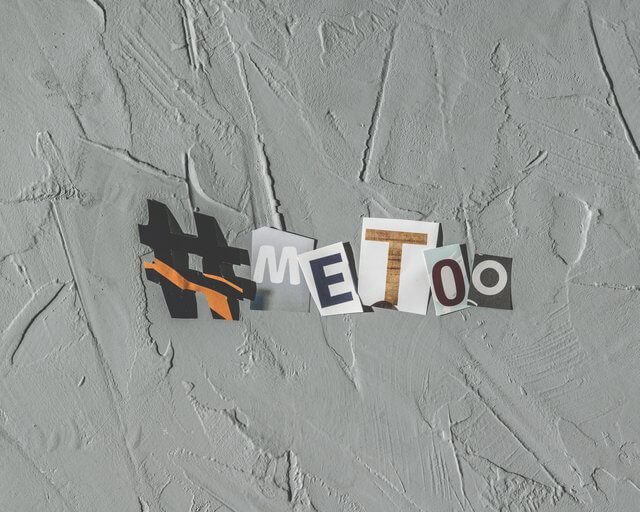This Blog is written by Mayank Raj Pranav from Gujarat National Law University. Edited by Uroosa Naireen.
Democracy and Totalitarianism are two ideas that vary from one another generally. Democracy is a type of government wherein all the residents have an equivalent state in issues concerning their lives. Then again autocracy is a political framework wherein a solitary individual presented with all forces perceives no restriction to his forces.
This Blog is written by Nipa Dharod from SVKM’s Pravin Gandhi College of Law, Mumbai. Edited by Uroosa Naireen.
From conventional times, trade i.e. the transfer of goods and/or services from one entity to another has been classified into two types: – Domestic trade and international trade. International trade includes export trade i.e. when goods and services produced in one country are offered for sale in another country.
This Blog is written by Fatema Lightwala from SVKM’s Pravin Gandhi College of Law, Mumbai. Edited by Uroosa Naireen.
The Right to be Forgotten is a right to have private information about an individual to be removed from Internet searches and other directories under certain circumstances. Thus, it enables persons, to demand organizations to delete their personal information from the internet.
This Blog is written by Kaviya Kannan from Kasturba Gandhi Degree College, Osmania University. Edited by Naina Agarwal.
The internet is a powerful example of free speech and expression in action. Although this might be true, people feel threatened sometimes even when they haven’t committed any crimes as a result of surveillance. Surveillance simply means close observation of a suspicious person or groups.
This Blog is written by Vanshika Rana from Symbiosis Law School, Noida. Edited by Maulika Awasthi.
Any wrongdoing whether it’s a fraud or corruption acts as cancer at the heart which further leads to many problems in the world. It decimates jobs and keeps down development, costing the world economy billions of dollars each year. It traps the least fortunate in the edgiest destitution as corrupt governments around the globe redirect reserves and forestall persevering individuals from getting the incomes and advantages of development that are legitimately theirs.
This Blog is written by Sanskar Raj Singh from Lloyd Law College, Greater Noida. Edited by Maulika Awasthi.
A will is a legal document that sets forth your wishes regarding the distribution of your property and the care of any minor children. If you die without a will, those wishes may not be carried out. In other words: Your will is the formal document that sets out what is to happen to your property and assets when you die.
This Blog is written by Rachna Kumari from KIIT School of Law, Odisha. Edited by Maulika Awasthi.
The extraordinary development of data society and its reliance on Internet utilization around the globe and especially in India is along the side joined by the helplessness of social orders to cybercrime. Cybercriminals are not compelled by geological impediments as cyberspace is a free-streaming, borderless, and a worldwide issue.
This Blog is written by Kaviya Kannan from Kasturba Gandhi Degree College, Osmania University. Edited by Maulika Awasthi.
Corporate integrity means how corporations are managed in an undivided and complete form. Corporate integrity has increased its prominence over the decades. The word Corporate or Corporation is derived from the Latin term ‘corpus’ which implies a ‘body’.
This Blog is written by Fatema Lightwala from SVKM’s Pravin Gandhi College of Law, Mumbai. Edited by Maulika Awasthi.
The Industrial Revolution that took place in the 18th century contributed to the unprecedented growth of industries and gave rise to the factory system of production. This maximized production and improved the quality of goods at lower costs. It revolutionized human life in several aspects, particularly how they consumed goods.
This Blog is written by Vanshika Rana from Symbiosis Law School, Noida. Edited by Debargha Mukherjee.
“EU-India Strategic Partnership: A Roadmap to 2025” is a report that will guide collaboration between the EU and India throughout the upcoming five years. The EU-India’s 15th summit held on 15th July 2020 reiterated the EU-India Strategic Partnership, emphasizing the common ideals and values of democracy, freedom, rule of law and respect for human rights, with an objective of bringing significant benefits to citizens in the EU and India.
This Blog is written by Vaishnavi from Central University of South Bihar, Gaya. Edited by Ritika Sharma.
We constantly run after creating materialistic things, forgetting about our own health, the biggest wealth that we already possess. Dreams need to be nurtured, just as seeds require nourishment for growing fruit-laden trees. Contemplative Meditation is surprisingly a simple and effective solution to the problem.
This Blog is written by Mayank Raj Pranav from Gujarat National Law University. Edited by Ritika Sharma.
The law must request that any interest in penetrating any person’s security should initially be put under the watchful eye of a court and reconnaissance must be done uniquely with the legal assent. The legal official can hear the case in the camera yet should list the proof introduced and the explanations behind giving or denying the official’s interest.
This Blog is written by Prakhar Agrahari from Lloyd Law College, Greater Noida. Edited by Ritika Sharma.
The Padmanabhaswamy sanctuary is a Hindu sanctuary situated in Thiruvananthapuram, the state capital of Kerala, India. The name of the city of Thiruvananthapuram in Malayalam means “The City of Lord Ananta”, alluding to the divinity of the Padmanabhaswamy sanctuary.
This Blog is written by Manjari Shukla from Symbiosis Law School, Noida. Edited by Ritika Sharma.
Modern times are taking Clive Humby, the British Mathematician’s quote, “Data is the new oil” up a notch. Why? Because data is treated as a valuable asset, which can be monetized, traded, or be invested in. Various services are also built on top of user data. It’s the latest product which has taken the market by a tornado.
This Blog is written by Ishika Khurana from Vivekanand Institute of Professional Studies, IP University. Edited by Ravikiran Shukre.
India is one of the hardest-hit countries from the coronavirus with about 240,000 cases and more than 6,700 dead. According to official figures, about 2,233 have died in Delhi. Therefore, bodies of the people dying due to COVID-19 are very carelessly cremated.
This Blog is written by Simran Sahoo from KIIT School of Law, Odisha. Edited by Harsh Sonbhadra.
DISHA, 2018 is an initiative taken by the Ministry of Health and Family Welfare for advancing electronic health standards by implementing privacy and security measures for storage and exchange of electronic health records. This establishment would help in systematizing and regulating the collection, storage, transmission, and usage of digital health data by ensuring data privacy and data confidentiality.
This Blog is written by Devleena Prasad from Symbiosis Law School, Noida. Edited by Harsh Sonbhadra.
Tax Amnesty Schemes are incomprehensible to the above-cited desires for fair duty paying residents. In any case, it is an essential evil for any duty organization, particularly the ones invaded with high tax avoidance and tedious pending assessment prosecution.
This Blog is written by Ashutosh Rajput from Hidayatullah National Law University, Raipur. Edited by Harsh Sonbhadra.
The Appellate Body(AB) is one of the fundamental bodies of the World Trade Organization (WTO) wherein disputes of the Dispute Settlement Body (DSB) goes for appeal before the Appellate Body (AB) which upholds, reverse, or modifies the judgment of the DSB.
This Blog is written by Rujuta Sunil Jog & Soham Sanjay Athavale. Edited by Uroosa Naireen | Runners-up of 1st Online National Blog Writing Competition |
One of the most significant and influential inventions of the 20th century is the Computer. More and more information is being stored, transmitted, or processed in digital form in enforcement agencies including the Income Tax department. The law of the country has also taken cognizance of this reality.
This Blog is written by Sahina Mallick. Edited by Uroosa Naireen. | Winner of 1st Online National Blog Writing Competition |
Due to the ongoing coronavirus pandemic, Governments across the world have accepted ‘Lockdown’ measures to curtail the spread of this deadly virus. After various deliberations, meetings, and guidelines rooted by W.H.O., the Governments have voted for breaking the chain of the deadly virus by accepting the procedure of lockdown for different durations respectively.
This Blog is written by Ishika Khurana from Vivekanand Institute of Professional Studies, IP University. Edited by Ravikiran Shukre.
A Defense Testing Infrastructure Scheme (DTIS) has been approved by the Defense Minister Rajnath Singh on 15 May 2020. The primary objective behind launching this scheme is to boost up the Government Defense Manufacturing base and Aerospace sector.
This Blog is written by Nisha Patnaik from KIIT School of Law, Odisha. Edited by Ravikiran Shukre.
The Indian military has been held in high respect over the world for their sheer coarseness and assurance. The one perceptible thing in the entirety of India’s outfitted clashes has been the individualistic methodology of each power.
This Blog is written by Vidur Thanawala from Bennett University, Greater Noida. Edited by Ravikiran Shukre.
The recent purchase of the Rafale combat flights by the Indian Government ran into a controversy when a PIL was filed before the Hon’ble Supreme Court of India, the PIL was filed on the grounds that the government, allegedly has tried to suppress sensitive information regarding the purchase of the flights and was trying to cover up a scandal that was worth crores.
This Blog is written by Ramae Krisshna Reddy from Symbiosis Law School, Noida. Edited by Yash Jain.
Recently, India is facing a very challenging strategic environment, with its neighboring countries possessing significant capabilities and tactics. Protecting a nation from national security has been becoming an arduous task for a government in recent times.
This Blog is written by Yash Yadav from Alliance University, Bengaluru. Edited by Yash Jain.
This article will revolve around the concept of Insider Trading in India. In light of the prohibition of insider trading all over the world including India, this article will focus on Recent changes in the rules and regulations regarding Insider Trading.
This Blog is written by Vidur Thanawala from Bennett University, Greater Noida. Edited by O.S.S. Sarada Rasagnya & Amrith R.
The unpredictable felling of trees has brought about a decrease of 3.16% in the worldwide woods spread from 1990 to 2015. In spite of the fact that India has seen an addition in the aggregate woodland front of carbon – dioxide 1%, still, there are sure locals in the nation that have looked for a reduction in the forestation spread.
This Blog is written by Abhishek Kishan from Central University of South Bihar, Gaya. Edited by O.S.S.Sarada Rasagnya.
Nobody nowadays can deny the fact that social media plays a potential role in uniting peoples across the globe. It has become the most favorite activity to hang out over social media through texting voice/video calling and whatnot.
This Blog is written by Jay Gajbhiye from National Law University, Odisha. Edited by O.S.S.Sarada Rasagnya.
The Commander of the Iranian Quds Force, General Qasem Soleimani, was assassinated by a drone attack on 3 January 2020 close to the airport of Baghdad. Amid the killing that has exacerbated conflicts in the ever-volatile Middle East, the legitimacy and else of the US attack has become one of the primary issues.
This Blog is written by Jatin Pandey from Kirit P. Mehta School of Law, NMIMS Indore. Edited by O.S.S.Sarada Rasagnya.
The General Agreement on Tariff and Trade (GATT) was signed at the conference in Geneva 1947. It came into force on 1 January 1948. After almost five decades of its existence; The World Trade Organization (WTO) was formed by reorganizing in January 1,995.
This Blog is written by Abhipsa Panda from KIIT School of Law, Odisha. Edited by Harshita Yadav.
India’s reaction to the coronavirus (Covid-19) pandemic has so far been affected dominatingly by three distinct laws – the Epidemic Diseases Act, 1897 (EDA); the Disaster Management Act, 2005 (DMA); and the Indian Penal Code, 1860 (IPC).
This Blog is written by Kumar Shubham from KIIT School of Law, Odisha. Edited by Lisa Coutinho.
The Unlawful Activities (Prevention) Act is an Indian law aimed toward effective prevention of illegal activities associations in India. Its predominant objective is to make powers available for managing and dealing with activities directed against the integrity and sovereignty of India.
This Blog is written by Lisa Coutinho from SVKM’s Pravin Gandhi College of Law, Mumbai. Edited by Harshita Yadav.
The Constitution of India has enshrined the Indian Judiciary with the significant duty of interpreting the laws made by the legislative body of the government by settling disputes and punishing the lawbreakers, adjudicating justice, and identifying and filling in the legislative lacunas by setting out precedents.
This Blog is written by Kaviya Kannan from Kasturba Gandhi Degree College, Osmania University. Edited by Lisa Coutinho.
When the Bodos called for a separate state in the late 1960s, little did they know that this complication was going to last for over 50 years. Previously, their movement for a separate homeland began in the 1930s under the British rule, but it was only in the 1960s that they began to organize themselves.
This Blog is written by Prakhar Agrahari from Lloyd Law College, Greater Noida. Edited by Debargha Mukherjee.
The Hon’ble Supreme Court has held in the case of Extra-Judicial Execution Victim Families Assn. v. Union of India that “the security of the nation is of paramount importance and this involves the security of the States as well”.
This Blog is written by Abhipsa Panda from KIIT School of Law, Odisha. Edited by Lisa Coutinho.
Economic warfare is the utilization of or the danger to utilize financial methods against a nation so as to debilitate its economy, and in this manner lessen its political and military force. Financial fighting additionally incorporates the utilization of monetary resources, intends to propel an enemy to change its arrangements or conduct or sabotage its capacity to direct typical relations with different nations.
This Blog is written by Jatin Pandey from Kirit P. Mehta School of Law, NMIMS Indore. Edited by Harshita Yadav.
India currently has one of the highest growth rates in civil aviation and ranks among the countries with the highest expected growth levels in both civil aviation passengers and freight, considering the economic growth prospects.
This Blog is written by Shelal Lodhi Rajput from Symbiosis Law School, Pune. Edited by Debargha Mukherjee.
The Initial tracing of telecom sectors can be traced way back to the 19th century when the Britishers introduced telegraph services in India. Since that time, the evolution in the field of telecom sector has revolutionized in many ways.
This Blog is written by Jay Gajbhiye from National Law University, Odisha. Edited by Harshita Yadav.
Censorship is a process that controls some components of the information by the entity which does not adhere to the thoughts and knowledge circulated in society. In general, the government controls the flow of many parts of a book, film, or anything that the public can see.
This Blog is written by Manjari Shukla from Symbiosis Law School, Noida. Edited by Lisa Coutinho.
Sexual harassment at workplace or sexual harassment as a whole has been there in society since time immemorial. Thus, we can say that it has become synonymous with our society. But recently the trends have changed.
This Blog is written by Vidur Thanawala from Bennett University, Greater Noida. Edited by Prakriti Dadsena.
The world in the 21st century is considered to be moving more and more towards the globalization, in today’s world everything is accessible on the internet. This is considered to be a bane for the world but one of its aspects is also considered to be boon for the world.








































